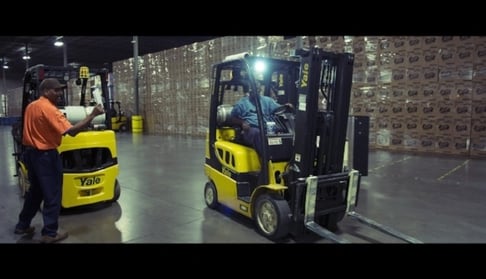5 Ways To Cut Out Overspending In Your Warehouse Operations
5 Ways To Cut Out Overspending In Your Warehouse Operations So, you want to know to how reduce the spending when operating a warehouse? It takes a...

Managing a warehouse seems easy at face value but it demands focus. You need a keen eye for small details, like scanning, cataloging, data-entry, and billing. One small mistake can create a snowball effect, but manage your warehouse correctly and you can avoid that avalanche altogether.
Here are four tips that will help your warehouse operations run a little bit smoother. (Unless you'd like RBW to manage your warehouse, that is.)
Create A Budget

It is a business, after all. You have to take the time to set a budget. Would you go on a cross-country trip without the GPS access to provide a road map? Taking the time to create a budget for your warehouse provides you with that road map, and a detailed budget for your company will allow you to arrive safely at your intended destination.
Here are a few monthly costs to take into consideration.
Once you have set your budget, the next step is to monitor your expenses with the goal of staying under your allotted amount. This will force you to become more disciplined, resulting in fiscally responsible business decisions.
Quickly Enter Data

The earlier you enter data, the less likely you are to make a data-entry error or forget an important detail.
The benefits of this strategy are clear, but it's something that many warehousing companies can find difficult. An efficient data-entry process is key to productive warehousing operations.
Crucial decisions are typically made from what that data tells us. If incorrect data is entered, ill-informed decisions are likely to be made. Another important aspect of data entry is to ensure that your data-entry personnel understands how their contributions impact the big picture. If personnel realizes how their contributions affect the end product, they are more likely to take ownership of their part.
Set Discipline Standards
Set discipline standards and hold your team members accountable. These can include things such as:
Some of these standards may seem pretty obvious, but others may not. Standards bring discipline. Discipline leads to order. Order brings about efficiency and a lean operation. Some team members may go kicking and screaming toward newly implemented standards, but in the long run, there will be great appreciation for the discipline of your operations.
Forecast Your Labor Needs

Be proactive instead of reactive. Make sure your channels of communication are clear and open. If communication about the workflow is consistently abbreviated, use historical data (ins-and-outs numbers) to forecast the amount of staff needed to accommodate the added load. Know the strengths of your warehouse workers, as well as their limitations. Knowing these things will better optimize your labor usage and help get your business as lean as possible.
These four tips will allow your operations to become more effective.

5 Ways To Cut Out Overspending In Your Warehouse Operations So, you want to know to how reduce the spending when operating a warehouse? It takes a...

Your warehouse productivity is directly linked to your ability to organize your operations and motivate your top performing employees. Ten great tips...

Effective warehouse management can be summed up in three words – Control, Co-ordinate, Communicate. Today’s warehouse environment is more than a...